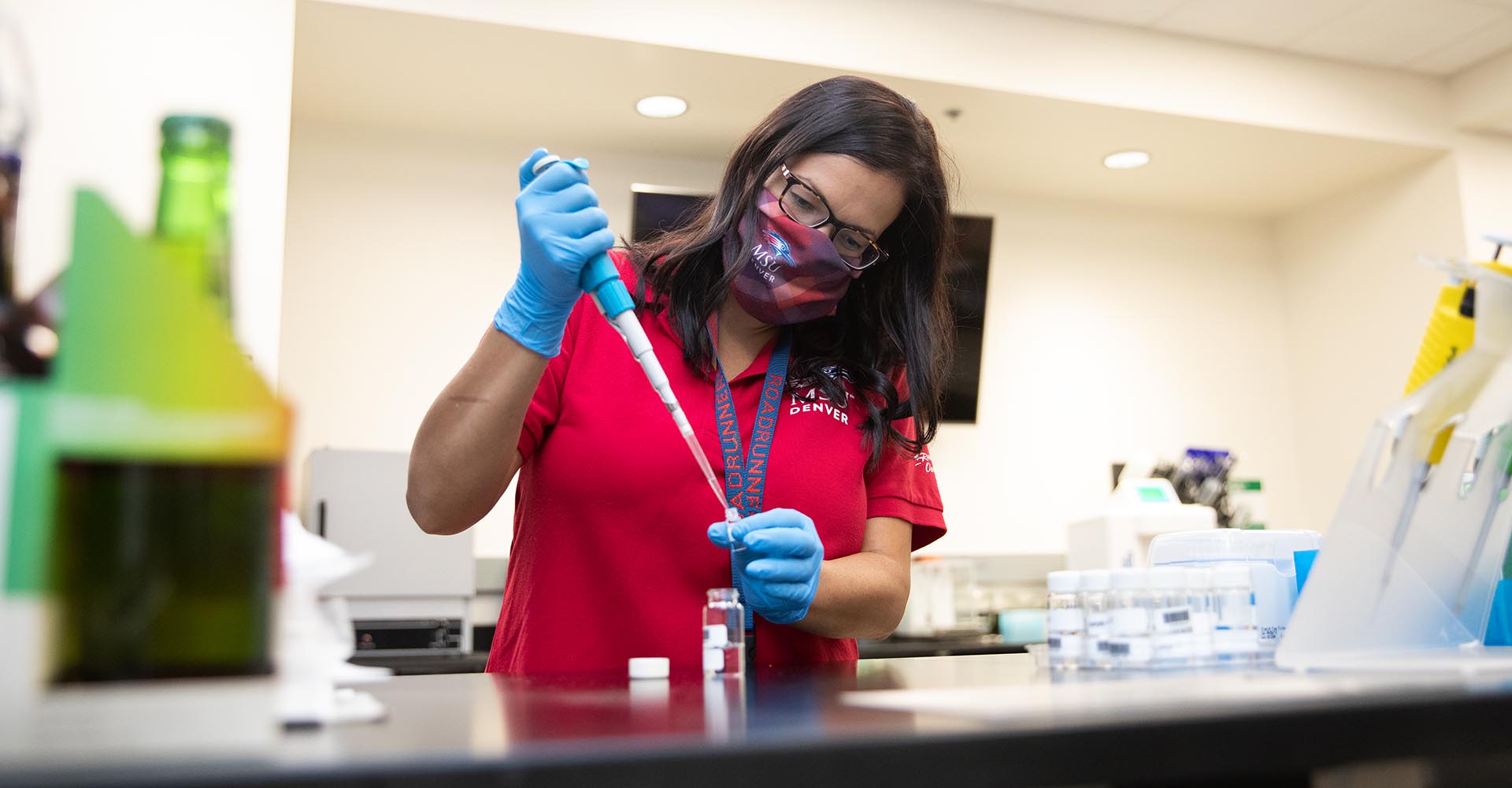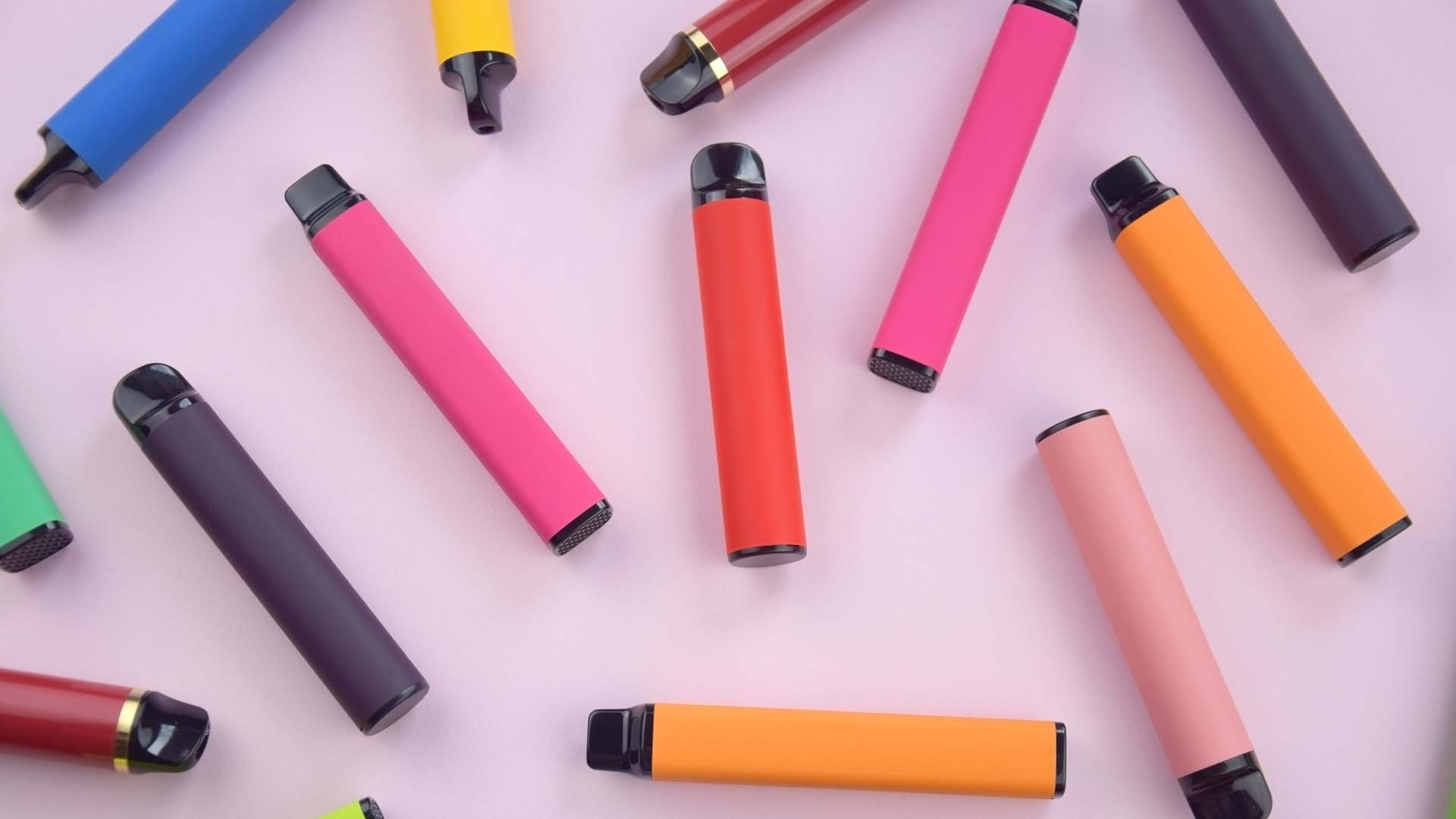In safe hands
Here’s how MSU Denver’s Chemistry Department and Beer Industry Program teamed up to make sure Auraria Campus facilities have plenty of hand sanitizer.

Only a fraction of Metropolitan State University of Denver’s student body returned to campus last week for in-person instruction as the COVID-19 pandemic forced most fall-semester classes online.
Those who are attending face-to-face classes are adhering to the University’s Safe Return to Campus plan, which requires them to wear facemasks, maintain physical distancing and limit time spent on campus. They’re also asked to use hand sanitizer when entering and exiting buildings, and thanks to an innovative partnership between the University’s Chemistry Department and Beer Industry Lab, there’s plenty of it to go around.
This summer, the two departments worked together to manufacture, test and distribute nearly 50 gallons of hand sanitizer to Auraria Campus facilities.
The University community can have confidence in the product his department cooked up, said Andrew Bonham, Ph.D., chair of MSU Denver’s Department of Chemistry.
“There is a difference between ‘I made hand sanitizer. I hope it works’ and ‘I did the due diligence to make it the right way and to verify it in the right way’ so that we can be confident that this is a good product that will protect people,” he said.
The department’s due diligence started with researching recommendations for hand sanitizer from organizations such as the World Health Organization. Final hand-sanitizer products should contain concentrations of 80% ethanol or 75% isopropyl alcohol, according to U.S. Pharmacopeia hand-sanitizer formulas, which align with WHO formulations.

To make sure the product MSU Denver chemists created met those standards, it sent the sanitizer to the University Beer Industry Labs’ Quality Analysis and Quality Control lab. The Federal Alcohol and Tobacco Tax and Trade Bureau-certified facility allows brewers, vintners and other beverage-makers to test products for alcohol content, nutritional content, water quality and other ingredients. But this summer, the lab shifted its role to help stop the spread of coronavirus by measuring out ethanol percentages in the Department of Chemistry’s hand sanitizer to ensure it was effective.
Katie Strain, beer-analysis lab and quality-control lab manager for MSU Denver’s Quality Analysis and Quality Control Lab, assisted in testing the hand sanitizer. She said the hand sanitizer that the Department of Chemistry made came out clean and effective.
“For a while, there was such a shortage of hand sanitizer, and I think MSU Denver being able to make its own steady source gave stability to campus. It’s a really great, top-notch product that they made,” said Strain.
Bonham credited James Laughlin, Department of Chemistry lab manager, for going above and beyond in ensuring that the hand sanitizer met commercial-grade standards.
The Centers for Disease Control and Prevention says alcohol-based hand rub is a simple and effective way to prevent the spread of pathogens and infections. Bonham said the moment that studies came out that high alcohol content was effective at fighting the coronavirus, the Department of Chemistry was ready to go to produce hand sanitizer and set up space in its unused lab to manufacture the product.
“I think it shows the speed at which our faculty and staff were able to respond, Bonham said. “In March, there was no hand sanitizer commercially, and we could pivot our labs and get that hand sanitizer produced.”







